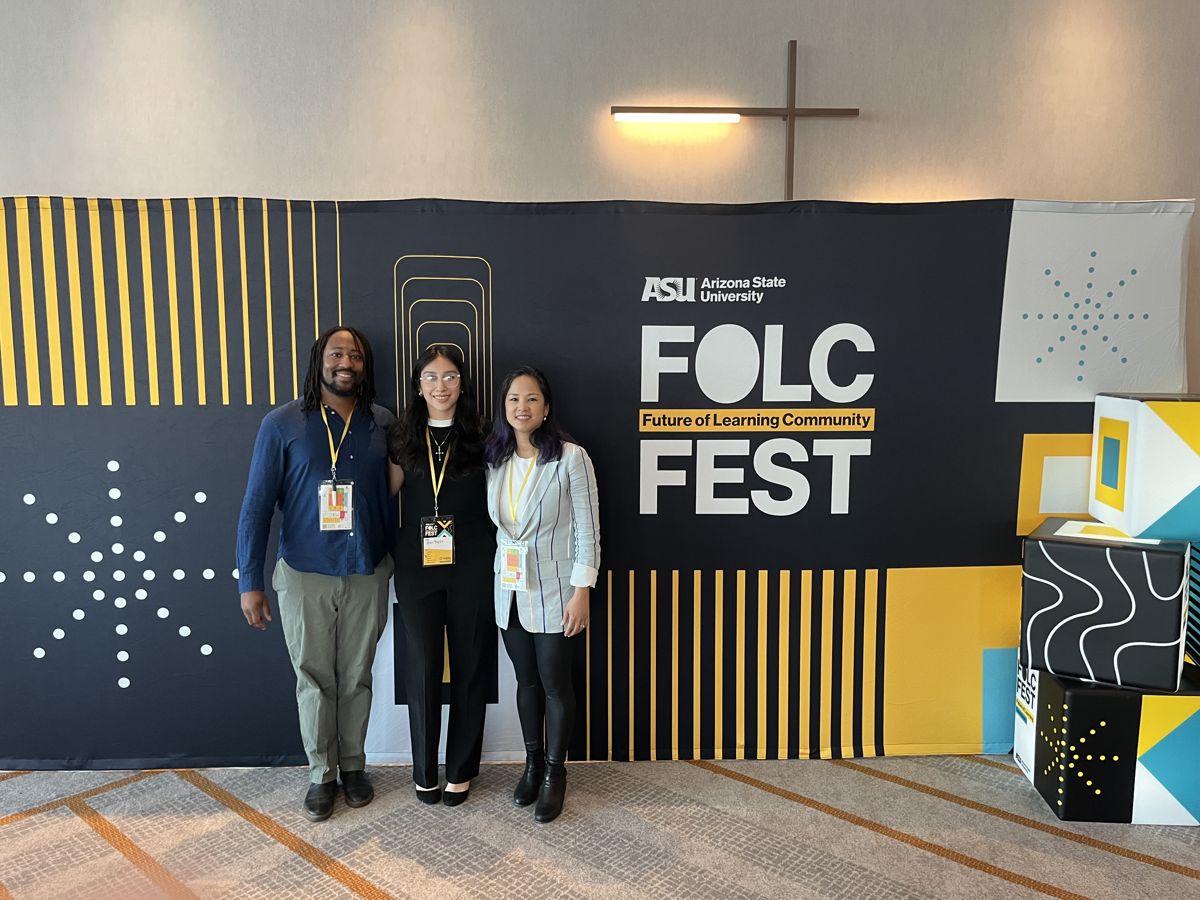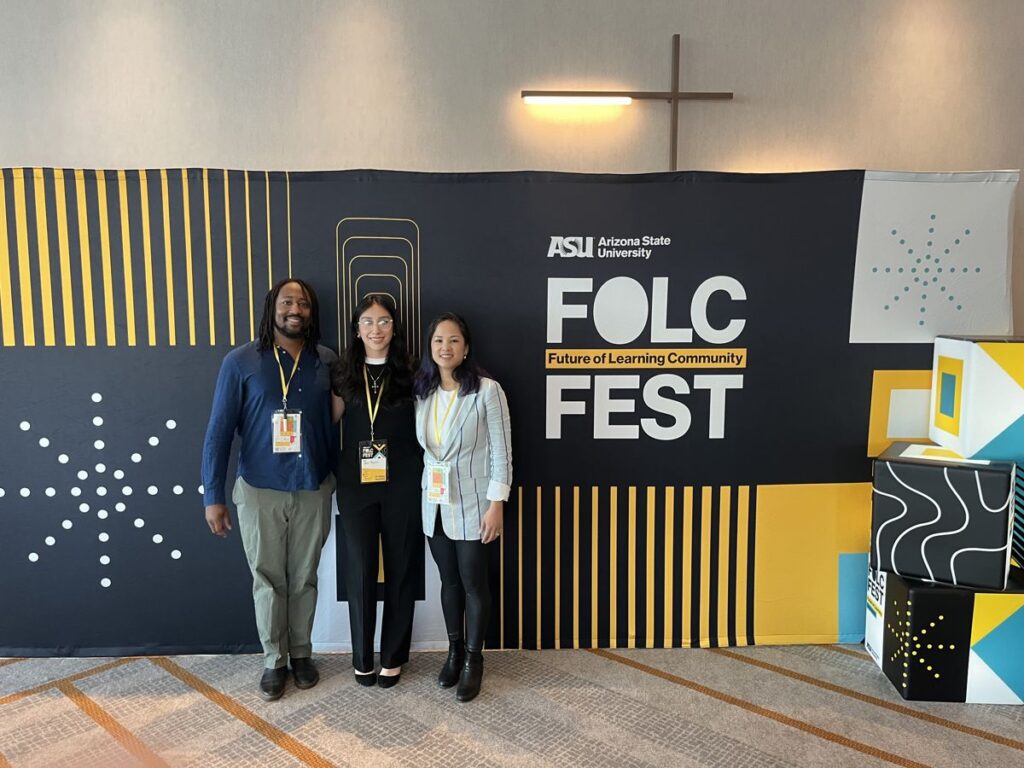Spotlight on Design Justice at FOLC Fest 2025

On February 28, 2025, hundreds of ASU educators, technologists, students, and student success professionals gathered at FOLC (Future of Learning Community) Fest to shine a light on how principled innovation has shaped their work, guided their practices, and echoed ASU’s charter commitments. As part of this event, Dr. Bea Rodriguez-Fransen, Director at ASU Next Lab and Instructor at The Design School, collaborated with Dr. RJ Millhouse, Assistant Professor at The Design School, and Rubi Trujillo, an Architectural Studies student and Design Justice Initiative member, to facilitate a workshop on Design Justice in Higher Education. This session explored how design justice principles can be used to analyze or co-design learning products, experiences, or systems. The workshop at FOLC Fest 2025 moved beyond theory and into practical application, inviting participants to analyze or co-design learning products or experiences through a design justice lens. Attendees analyzed various ed tech tools, including AI and the Canvas learning management system.

What is design justice?
Design justice is more than a theoretical framework—it is a call to action. It examines how design distributes benefits and burdens in society. Recognizing that those who are typically included in the design process tend to be those with resources and power, design justice framework asks three questions:
1) Who is included in the design process?
2) Who might benefit from this process?
3) Who might be harmed from this process?
At the core of this movement are 10 Design Justice Principles, which guide designers to use their work as a tool for empowerment, healing, and liberation. These principles advocate for:
- Centering the voices of impacted communities
- Prioritizing impact on the community over intent of the facilitator
- Designing through accountable, accessible, and collaborative processes
- Honoring traditional, Indigenous, and local knowledge
Design Justice at Next Lab
One of the themes that underpin various projects at Next Lab is principled innovation. ASU Next Lab integrates design justice principles when creating prototypes, developing the capacities of next-generation innovators to co-create with diverse communities learning products and environments that are accessible and inclusive. An example is EDge AI, an AI-driven solution that expands educational access for remote and underserved communities by enabling offline functionality on low-powered devices, ensuring data privacy, and respecting culturally sensitive information in areas with limited internet and power infrastructure.
Design Justice Initiative at The Design School
The Design Justice Initiative at ASU is a student-led effort within The Design School dedicated to decolonizing design education and advocating for ethical, community-driven design solutions. Their work aligns with Next Lab’s mission to shape the future of education by embracing learner agency and design justice.
Continuing the Conversation
As the landscape of higher education continues to evolve, conversations like the one that took place at FOLC Fest 2025 are crucial for driving meaningful change. Whether you’re an educator, practitioner, organization, or student, you’re invited to engage with Next Lab, The Design School or the Design Justice Initiative in shaping more inclusive futures for learning.
Schedule a design justice workshop
Learn more about The Design School at ASU